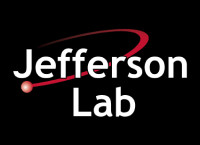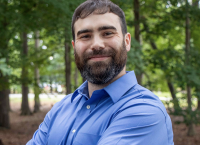The Center for Theoretical and Computational Physics pursues a broad program of theoretical research in all areas of quantum chromodynamics (QCD) and hadron physics, promoting and supporting the physics studied at Jefferson Lab and related facilities around the world.
THEORY SEMINAR
Monday, March 31th, 9:00AM (remote)
Archana Radhakrishnan (TIFR)
Monday, April 7th, 1:00PM (remote)
Luca Maxia (LPTHE Paris)
Monday, April 14th, 1:00PM (remote)
Yuxun Guo (LBNL)
Monday, April 21th, 1:00PM (in person, L102)
Carlota Andres (MIT)
Monday, May 5th, 3:00PM (remote)
Nicholas Hunt-Smith (Adelaide U.)
Previous presentations available here.
CAKE SEMINAR
Previous presentations available here.
QCD Evolution 2025 will be held at Jefferson Lab on May 19 - 23, 2025. The main objective of the workshop will be to provide a forum to discuss recent scientific accomplishments in areas such as generalized parton distributions (GPDs), transverse momentum distributions (TMDs), and small-x physics, together with advances in perturbative and nonperturbative techniques within QCD, such as lattice QCD and effective field theories. The abstract submission and registration are now open at the workshop's website.
See also the Theory Center's most recent Monthly Highlights.
Positions in the Jefferson Lab Theory Center involve research in theoretical hadronic and nuclear physics that motivates and supports Jefferson Lab experiments at 12 GeV and beyond.





